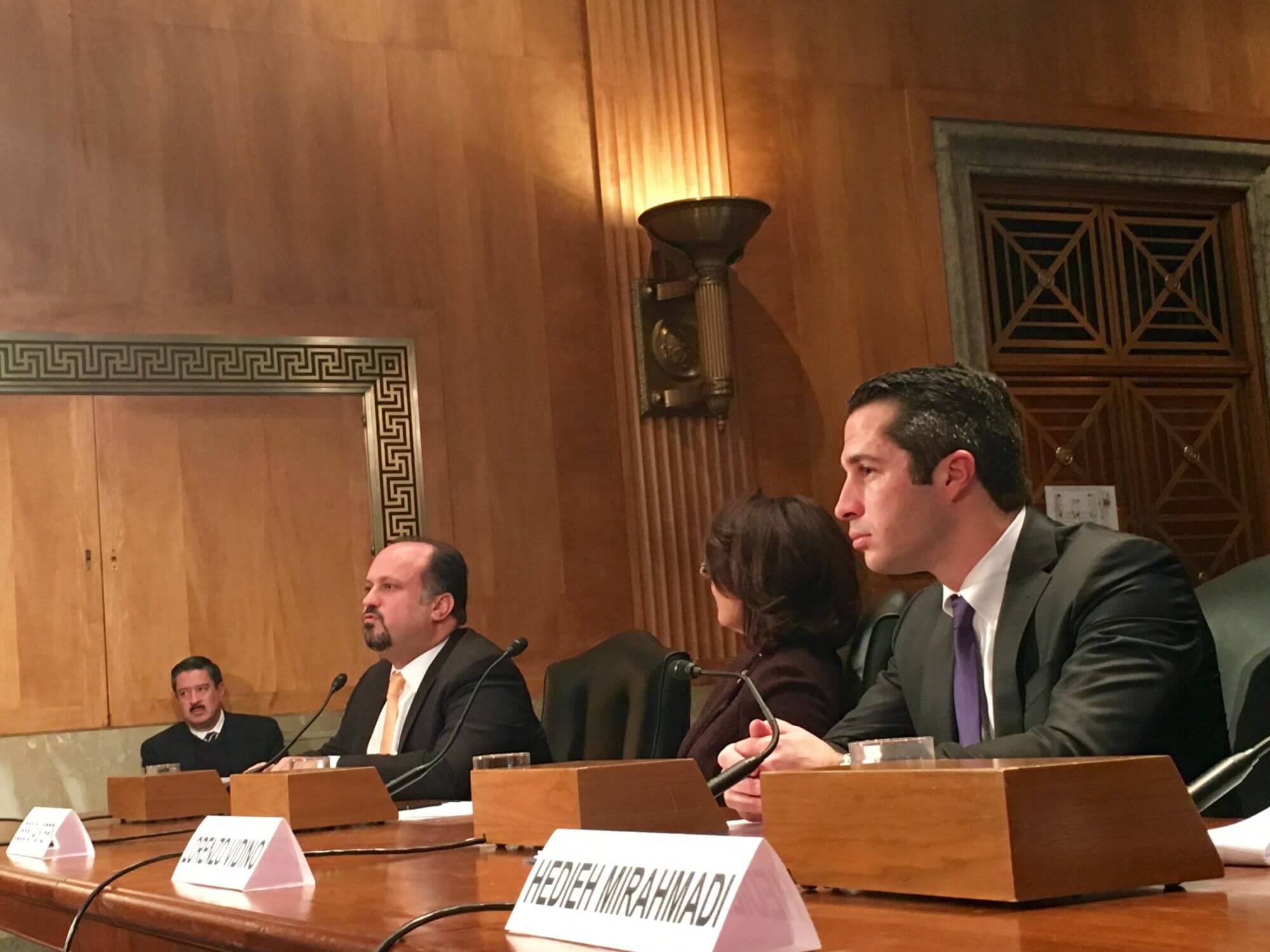
Experts discuss the goals and ideology of ISIS with the Senate Homeland Security & Governmental Affairs Committee.
WASHINGTON – Even though the Islamic State has suffered territorial losses in recent months, Americans should not have false hopes that the terrorist threat in the United States is diminished. In fact, the opposite may be true, a Princeton scholar said Wednesday.
Although ISIS has lost 40 percent of the territory it once claimed, the organization will likely become more desperate if it continues to lose ground and takes hits from the Kurds, the Iraqis and other adversaries, according to Princeton University Professor Bernard Haykel.
Desperation means more lone wolf action on our turf, said Haykel, the director of Princeton’s Institute of Transgressional Study of the Contemporary the Middle East.
Haykel and other witnesses appeared before the Senate Homeland Security and Governmental Affairs Committee to discuss the goals and ideology of the so-called Islamic State.
Recent attacks in Paris, Istanbul, Jakarta and San Bernardino. Calif., are proof, Haykel said, that ISIS continues to threaten the United States both nationally and internationally.
The best way to respond to these attacks is to not overreact, he said.
“ISIS (another name for the Islamic State) should not be seen as an existential threat because speaking of them as such plays into their narrative.”
One presidential candidate may be helping the Islamic State’s cause by doing just that, the Princeton professor said.
“The way Mr. Trump mentioned that Muslims should not be allowed into this country plays into the ISIS narrative because it basically confirms the U.S. is an enemy of Islam,” he said.
Republican frontrunner Donald Trump sparked controversy in November when he said that he would “look very, very carefully” at mosques in the United States and create a Syrian refugee database as part of his anti-terrorism efforts.
Another witness, Boston University research professor Jessica Stern, said that a key step in countering ISIS’ message in the United States is to stop vilifying Islam.
“Hate speech right now is extremely dangerous, vilifying all Islam and Muslims will absolutely hurt us by alienating 1.2 billion people in our country,” she said.
The progression and growth of terrorism is stark.
According to data released by the State Department, the number of terrorist attacks worldwide multiplied more than 2.5 times from 2012 to 2014, with 6,771 attacks in 2012 and 16,800 attacks in 2014. The number of deaths that resulted from these attacks increased almost four-fold in the same period, with 43,500 deaths in 2014.
In the U.S., Stern said the “homegrown recruit” needs to be the main focus thwarting ISIS-inspired attacks.
Westerners join the terrorists’ efforts as a way of reinventing themselves, she said, seeking new identities and adventure.
While Stern and Haykel agree there is no single cause or typical pathway for U.S. recruits, risk factors include mental illness and long periods of time spent on the Internet.
“The diversity is staggering,” said Lorenzo Vidino, the director of George Washington University’s program on extremism. “We have people who convert literally on Google overnight. They don’t know anything about Islam and then they think it’s their religious duty to join ISIS.”
According to a study released by Vidino last month, 40 percent of those arrested in the U.S. for terrorist-related crimes in the last 18 months were Muslim converts.
Although also unable to predict a typical terrorist profile, Vidino said lone wolves seem to have one psycho-social trait in common: a desire to do something for what they see as a greater cause.

